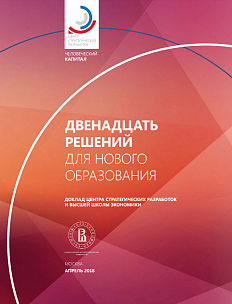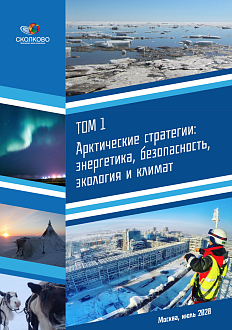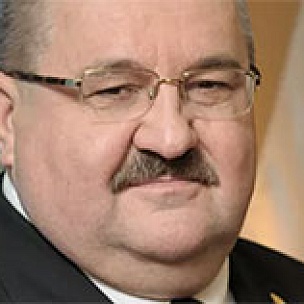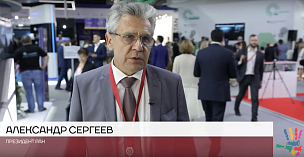Summary session «Education and Employment of Artic Indigenous Peoples» within the framework of the Arctic Talent Acquisition Conference, which took place on November 15-16, 2021 in Arkhangelsk.
KEY FINDINGS
Transformations in contemporary reality necessitate changes in education and training among Indigenous Peoples of the North
«Now, we are seeing huge transformations in the lives of our peoples. <...> The Arctic is being drawn into the global economy of the world, taking into account all aspects, including maybe the negative aspects. And we are now talking about the difficult reality facing reindeer herders and nomadic peoples. All the global changes further overhang all the challenges we face in our daily lives,» said Anders Oskal, Secretary General of the International Centre for Reindeer Husbandry and Executive director of the International Centre for Reindeer Husbandry of the Kingdom of Norway.
«With the COVID-19 pandemic, although there have been many challenges around the world in different areas of life, there are also new opportunities for people to communicate and opportunities to bridge gaps and build bridges between researchers and academia in education», said Anna-Lill Drugge, Senior Lecturer in Sami Studies at Umeå University.
There are increasing concerns about the preservation of the system of transmission of traditional knowledge from the bearers to the younger generation
«Today, unfortunately, there is a danger that there are too few carriers of traditional knowledge, and tomorrow we may find ourselves in a situation where we may lose this traditional knowledge, and it will remain only in archives and museums. <...> Maybe scientists will still possess this knowledge», said Vyacheslav Shadrin, researcher at the Institute for Humanitarian Research and North Indigenous Peoples Problems, Siberian Branch of the Russian Academy of Sciences.
PROBLEMS
The languages of indigenous peoples in the Arctic are on the brink of extinction. And there is no unified approach to teaching indigenous traditional knowledge in the education system
«If you look at Norwegian history, you have to admit that the years of colonization and assimilation have transformed the Sámi people. It has affected their language, culture and religion. From the 1850s until the 1990s, there was an assimilation policy, and we know that the language disappeared altogether in some regions, and the dialects ceased to exist. <...> Now there are not enough teachers of the [Saami] language,» said Torjer A. Olsen, professor in Indigenous Studies at the Centre for Saami Studies at the University of the Arctic.
«At the moment, unfortunately, we have no education in mother tongues. At practically no level, even from kindergarten and primary schools», said Vyacheslav Shadrin, researcher at the Institute for Humanitarian Research and North Indigenous Peoples Problems, Siberian Branch of the Russian Academy of Sciences.
«In the absolute majority of our schools, of the schools of the peoples of the North, the system of transmitting traditional knowledge is unfortunately not systematic. We have practically no elaborated system of education. And the system of knowledge bearers is in a parallel situation», said Vyacheslav Shadrin, researcher at the Institute for Humanitarian Research and North Indigenous Peoples Problems, Siberian Branch of the Russian Academy of Sciences.
Stereotypical attitudes about the trajectory young indigenous people should follow. The problem of choosing between traditional activities and modern professions
«The current market and education must become more equitable in relation to indigenous knowledge, economies and products. This is about equal opportunities, where every citizen of any country should have a choice of what they want to do. Indigenous people can work in any industry they want, or they can be hunters, herders, reindeer herders or professors in any science,» said Florian Stammler, research professor at the University of Lapland’s Arctic Centre.
«It’s very important because it’s such an outlet for indigenous peoples to apply their knowledge, their talents right there, but also to earn money,» said Sofia Undru, Associate Professor at the Institute of the People of the North, Deputy Director for Regional Relations and International Cooperation at the A. I. Herzen Russian State Pedagogical University.
«The level of recognition of indigenous peoples is very high in Norway, but it’s all in documentation. <...> It needs to be demonstrated by practical actions at the level of educational programmes in specific schools. And there is still a lot to be done here. We, the universities, have to play a leading role in this», said Torjer A. Olsen, professor in Indigenous Studies at the Centre for Saami Studies at the University of the Arctic.
SOLUTIONS
Greater involvement of the state and relevant agencies in the modernization of indigenous education in northern territories
«We would like to see more efforts on the part of the state to reform the indigenous education system. We would like to see more of an informal approach so that the agencies and structures involved in the indigenous community, responsible for indigenous education, listen more to the peoples themselves and understand the needs of today. Now it is necessary to improve training programmes and orient and integrate modern specialities», said Nina Veysalova, Vice-President of Russian Association of Indigenous Peoples of the North, Siberia and the Far East for Education, Native Languages and Project Activities.
«Our task is to work together with the other countries of the Arctic Council to prepare such recommendations that would allow for changes, improve the education system and create a systematic approach to training,» said Mikhail Pogodaev, Deputy Minister for the Development of the Arctic and Northern Affairs of the Republic of Sakha (Yakutia), and Special Representative of the Russian Chairmanship of the Arctic Council on Indigenous Peoples and Regional Cooperation.
Encouraging young indigenous professionals who have achieved success, respecting their right to choose and including the right to engage in profitable activities
«In today’s context, indigenous peoples are looking at different areas of employment for themselves, <...> in scientific work. <...> This year, the International Association of Arctic Social Researchers established a special Victoria Petrasheva Award for Young Indigenous Researchers. And this year, for the first time, it was awarded to the Nenka Roza Laptander. But it is not only science that attracts young people today: many are also attracted to practical activities, and specialist knowledge can help them find employment, entrepreneurship or community organizations,» said Natalia Novikova, head researcher at the N.N. Miklukho-Maklai Institute of Ethnology and Anthropology of the Russian Academy of Sciences (IEA RAS).
«Given precisely the traditionalism and the focus on the preservation of traditional economic activities, we now have to think about [giving] any person the right to choose their path, their choice of modern profession,» said Nina Veysalova, Vice-President of Russian Association of Indigenous Peoples of the North, Siberia and the Far East for Education, Native Languages and Project Activities.
For more analytical materials on the Arctic agenda, see the Roscongress Information and Analytical System roscongress.org/en/knowledge/arktika/materials/.
The material was prepared by the information partner of TASS.






